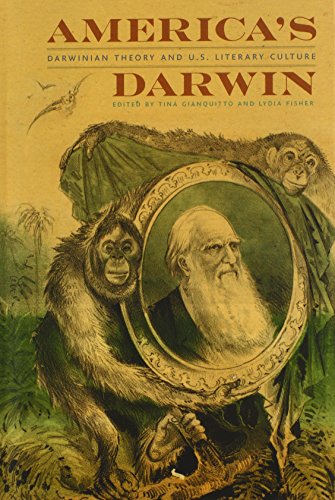

Most ebook files are in PDF format, so you can easily read them using various software such as Foxit Reader or directly on the Google Chrome browser.
Some ebook files are released by publishers in other formats such as .awz, .mobi, .epub, .fb2, etc. You may need to install specific software to read these formats on mobile/PC, such as Calibre.
Please read the tutorial at this link: https://ebookbell.com/faq
We offer FREE conversion to the popular formats you request; however, this may take some time. Therefore, right after payment, please email us, and we will try to provide the service as quickly as possible.
For some exceptional file formats or broken links (if any), please refrain from opening any disputes. Instead, email us first, and we will try to assist within a maximum of 6 hours.
EbookBell Team

5.0
98 reviewsWhile much has been written about the impact of Darwin’s theories on U.S. culture, and countless scholarly collections have been devoted to the science of evolution, few have addressed the specific details of Darwin’s theories as a cultural force affecting U.S. writers. America’s Darwin fills this gap and features a range of critical approaches that examine U.S. textual responses to Darwin’s works.
The scholars in this collection represent a range of disciplines—literature, history of science, women’s studies, geology, biology, entomology, and anthropology. All pay close attention to the specific forms that Darwinian evolution took in the United States, engaging not only with Darwin’s most famous works, such as On the Origin of Species, but also with less familiar works, such as The Expression of the Emotions in Man and Animals.
Each contributor considers distinctive social, cultural, and intellectual conditions that affected the reception and dissemination of evolutionary thought, from before the publication of On the Origin of Species to the early years of the twenty-first century. These essays engage with the specific details and language of a wide selection of Darwin’s texts, treating his writings as primary sources essential to comprehending the impact of Darwinian language on American writers and thinkers. This careful engagement with the texts of evolution enables us to see the broad points of its acceptance and adoption in the American scene; this approach also highlights the ways in which writers, reformers, and others reconfigured Darwinian language to suit their individual purposes.
America’s Darwin demonstrates the many ways in which writers and others fit themselves to a narrative of evolution whose dominant motifs are contingency and uncertainty. Collectively, the authors make the compelling case that the interpretation of evolutionary theory in the U.S. has always shifted in relation to prevailing cultural anxieties.